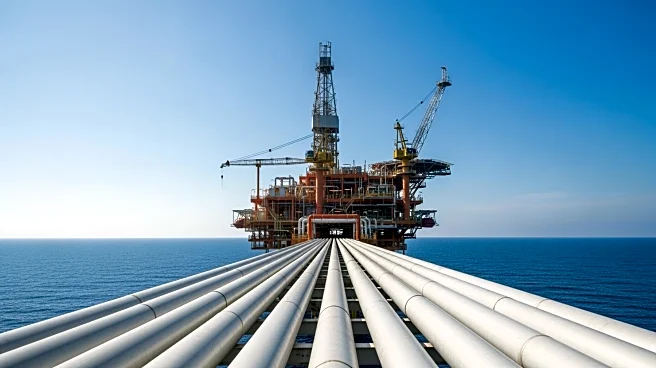What's Happening?
Equinor has started production at the Bacalhau field in Brazil's Santos basin, marking a significant milestone for one of the largest deepwater developments globally. The field, with recoverable reserves
exceeding 1 billion barrels of oil equivalent, is expected to reach a peak production capacity of 220,000 barrels per day. The project, operated by Equinor alongside partners ExxonMobil Brasil, Petrogal Brasil, and Pré-sal Petróleo SA, represents Equinor's largest international offshore investment. The ultra-deepwater field utilizes advanced Floating Production, Storage and Offloading (FPSO) units, featuring combined-cycle gas turbine technology to reduce carbon intensity. Equinor anticipates CO₂ emissions of about 9 kg per boe, setting a benchmark for low-emission offshore operations.
Why It's Important?
The commencement of production at Bacalhau is crucial for Equinor and the global oil industry. It underscores Equinor's commitment to cost-efficient and low-carbon intensity projects, aligning with broader industry trends towards sustainable energy production. The project is expected to contribute significantly to Equinor's goal of generating over $5 billion in free cash flow by 2030 from its international portfolio. Additionally, Bacalhau's development supports Brazil's economy, with projections of around 50,000 jobs over its 30-year lifespan. The field's production capabilities and technological advancements position Equinor as a leader in offshore oil production, influencing industry standards and practices.
What's Next?
Equinor plans to assume full operation of the FPSO facilities after MODEC's initial operating phase concludes. The company will continue to ramp up production as additional wells come online, enhancing its output and economic contributions. Stakeholders will monitor the project's impact on Brazil's economy and employment, as well as its role in Equinor's international growth strategy. The project's success may encourage further investments in similar low-emission offshore developments, shaping future industry trends and environmental standards.









